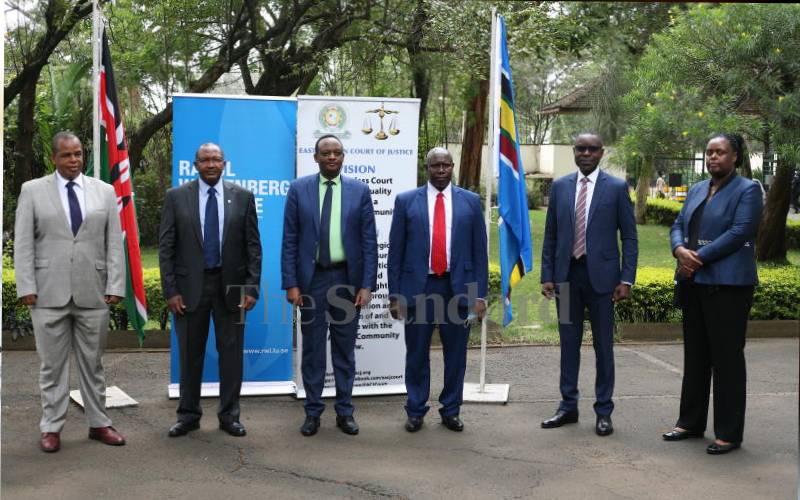×
The Standard e-Paper
Home To Bold Columnists

Justice Yohane Masara principal judge (Tanzania), Justice Kathurima Minoti (Kenya), Justice Richard Muhumuza (Rwanda), Justice Nestor Kayobera President of the Court, Justice Richard Wejuli (Uganda), Lady Justice Anita Mugeni (Rwanda), pose for a photo during induction of EACJ new judges on April 14, 2021. [Wilberforce Okwiri,Standard]
New judges of the East Africa Court of Justice (EACJ) were unveiled yesterday even as a tussle over the location of the court’s headquarters continues.